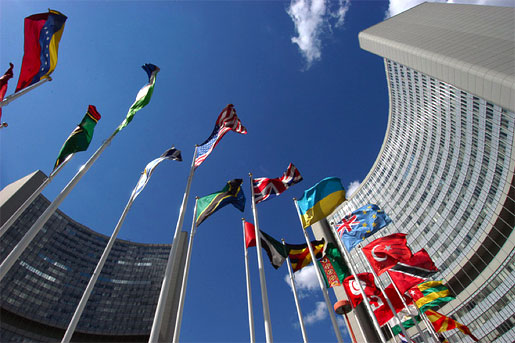13 December 2012, Gillian Dell.
The UNCAC review process entered its third year in July 2012 and continues to assess national UNCAC implementation in the areas of criminal law and enforcement as well as international cooperation. The good news is that the process is progressing slowly but steadily and in some countries is prompting some reforms.
The bad news is that the process continues to fall short of its potential due to lack of transparency and inclusiveness. This is because of limitations in the guidelines adopted by states parties. UNODC, the secretariat for the process, advises that it is not authorised to disclose information about when and how the reviews are conducted. As far as we can tell, the information is seldom published online by the government under review but is sometimes provided to people who inquire with the right officials. The Coalition continues to call for transparency and inclusiveness in the review process.
Consequently, it was very welcome to hear that prior to a review team visit to Panama in November, the government announced this visit on its website and invited non-governmental organisations to make inputs. We also learned that the government of Zimbabwe invited TI-Zimbabwe to meet the country review team and informed the public that the visit had occurred. But in Cuba and Russia, where we heard that review teams also made country visits, we do not know if any NGOs were invited to make inputs. A TI report in June 2012 compiled review process experience in 51 first and second year countries.

Dean Calma / Flickr
Apart from difficulties in finding out about the process, the public is only guaranteed access to a short summary of the full review report. The only way for the public to see the full report is if the government publishes it on its own website (as Finland has done) or if someone successfully files an access to information request, where applicable. Otherwise, apart from the government reviewed, the report can only be seen by UNODC and by government-appointed experts from the two reviewing countries. So far, the general practice is to keep the main report confidential. The Coalition continues to call for these reports to be made public.
As for other outputs, as of our last search on the UNODC website, for the first year of the UNCAC review process from July 2010 to June 2011, there were 5 government self-assessments and executive summaries for 19 of the 27 countries reviewed. For the 41 countries in the second year, which ran from July 2011 to June 2012, there were 4 self-assessments and 10 executive summaries. You can find available executive summaries on the UNCAC Coalition website and on the UNODC website. They contain many useful findings and recommendations. We do not know the circumstances that have delayed completion of first year reports for countries such as Argentina, Brazil, Burundi, the Dominican Republic, Niger, Papua, New Guinea, Peru, Rwanda and others. We are told the reasons can vary from delays caused by the country reviewed to extra time needed for translations.
UNODC also publishes cross-country thematic reports analysing the findings of the country reviews. These are posted on the web pages that UNODC sets up for sessions of the UNCAC Implementation Review Group and the Conference of States Parties. The two main thematic reports prepared by UNODC for the last meeting of the Implementation Review Group in November 2012 contained some interesting and useful findings regarding 24 countries that had been reviewed for compliance with UNCAC Chapter III and Chapter IV. These cover largely the legal framework not actual enforcement, except with regard international cooperation. They analyse adequacy of definitions of various offences, provisions on liability of legal persons, privileges and immunities and statutes of limitations as well as provisions on bank secrecy. For example the reports found:
- that the scope of the coverage of the term ‘public official’ in many state parties’ national legislation was a barrier to full implementation and that many states parties did not criminalise passive bribery of a public official.
- that implementation was inadequate in the areas of misappropriation of public funds, bribery of foreign public officials.
- that in several countries there were significant gaps in the law implementing the offence of money laundering and an urgent recommendation had been issued to enact appropriate legislation.
- that the highest number of technical assistance requests related to articles 32 (protection of witnesses and victims) and 37 (cooperation with law enforcement authorities).
Of course only the 164 countries that have ratified the UNCAC are involved in its review process, whether being reviewed or acting as reviewers. Those that have not ratified, such as G20 countries Germany, Japan and Saudi Arabia, are sitting on the sidelines.



